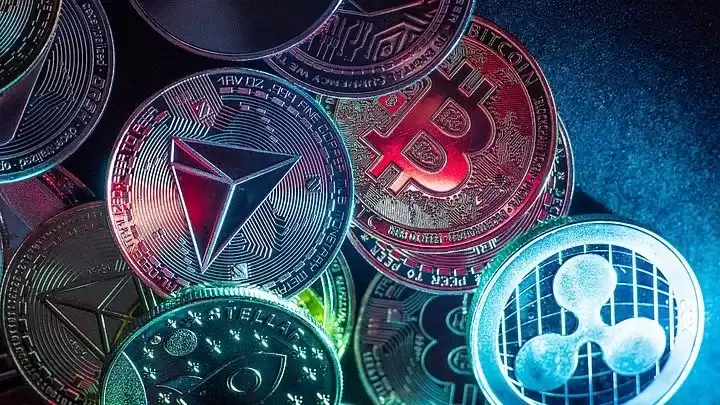-
 bitcoin
bitcoin $87959.907984 USD
1.34% -
 ethereum
ethereum $2920.497338 USD
3.04% -
 tether
tether $0.999775 USD
0.00% -
 xrp
xrp $2.237324 USD
8.12% -
 bnb
bnb $860.243768 USD
0.90% -
 solana
solana $138.089498 USD
5.43% -
 usd-coin
usd-coin $0.999807 USD
0.01% -
 tron
tron $0.272801 USD
-1.53% -
 dogecoin
dogecoin $0.150904 USD
2.96% -
 cardano
cardano $0.421635 USD
1.97% -
 hyperliquid
hyperliquid $32.152445 USD
2.23% -
 bitcoin-cash
bitcoin-cash $533.301069 USD
-1.94% -
 chainlink
chainlink $12.953417 USD
2.68% -
 unus-sed-leo
unus-sed-leo $9.535951 USD
0.73% -
 zcash
zcash $521.483386 USD
-2.87%
What does cryptocurrency contract mean
Cryptocurrency contracts offer a leveraged trading opportunity for speculating on price movements of cryptocurrencies without directly owning the coins.
Oct 08, 2024 at 10:31 am

A cryptocurrency contract refers to a financial instrument that derives its value from the underlying cryptocurrency it represents. It allows traders to speculate on the price movements of cryptocurrencies without having to directly own the actual coins.
2. Types of Cryptocurrency Contracts2.1. Futures Contracts:Obligate the buyer to purchase (long position) or the seller to sell (short position) a specific amount of cryptocurrency at a predetermined price on a specified future date.
Give the buyer the right (but not the obligation) to buy (call option) or sell (put option) a specific amount of cryptocurrency at a predetermined price on or before a specified future date.
Cryptocurrency contracts can be based on a variety of cryptocurrencies, including:
Bitcoin (BTC)
Ethereum (ETH)
Litecoin (LTC)
Dogecoin (DOGE)
Ripple (XRP)
Each cryptocurrency contract has its own unique specifications, including:
Contract size (number of coins per contract)
Tick size (minimum price change)
Trading hours
Margin requirements
Crypto contracts are typically traded on regulated exchanges that have the necessary infrastructure and security measures in place. Traders can open positions based on their market expectations and manage their risk accordingly.
6. Benefits and Risks6.1. Benefits:Leveraged trading: Magnify profits but also increase potential losses.
Hedging against price fluctuations.
Speculation on market movements.
High volatility: Cryptocurrency prices can fluctuate significantly, leading to substantial gains or losses.
Margin calls: Traders may be forced to post additional capital if their positions lose value.
Liquidation risk: Traders may lose all their equity if their positions are liquidated due to insufficient margin.
Cryptocurrency contracts provide a powerful tool for traders to speculate on the volatile cryptocurrency markets. However, it is essential to understand the mechanics, risks, and benefits involved before engaging in trading. Traders should exercise caution, manage their risk, and conduct thorough research to increase their chances of success.
Disclaimer:info@kdj.com
The information provided is not trading advice. kdj.com does not assume any responsibility for any investments made based on the information provided in this article. Cryptocurrencies are highly volatile and it is highly recommended that you invest with caution after thorough research!
If you believe that the content used on this website infringes your copyright, please contact us immediately (info@kdj.com) and we will delete it promptly.
- Trump's Fed Chair Pick: Kevin Warsh Steps Up, Wall Street Watches
- 2026-01-30 22:10:06
- Bitcoin's Digital Gold Dream Tested As Market Shifts And New Cryptocurrencies Catch Fire
- 2026-01-30 22:10:06
- Binance Doubles Down: SAFU Fund Shifts Entirely to Bitcoin, Signaling Deep Conviction
- 2026-01-30 22:05:01
- Chevron's Q4 Results Show EPS Beat Despite Revenue Shortfall, Eyes on Future Growth
- 2026-01-30 22:05:01
- Bitcoin's 2026 Mega Move: Navigating Volatility Towards a New Era
- 2026-01-30 22:00:01
- Cardano (ADA) Price Outlook: Navigating the Trenches of a Potential 2026 Bear Market
- 2026-01-30 22:00:01
Related knowledge

How to Execute a Cross-Chain Message with a LayerZero Contract?
Jan 18,2026 at 01:19pm
Understanding LayerZero Architecture1. LayerZero operates as a lightweight, permissionless interoperability protocol that enables communication betwee...

How to Implement EIP-712 for Secure Signature Verification?
Jan 20,2026 at 10:20pm
EIP-712 Overview and Core Purpose1. EIP-712 defines a standard for typed structured data hashing and signing in Ethereum applications. 2. It enables w...

How to Qualify for Airdrops by Interacting with New Contracts?
Jan 24,2026 at 09:00pm
Understanding Contract Interaction Requirements1. Most airdrop campaigns mandate direct interaction with smart contracts deployed on supported blockch...

How to Monitor a Smart Contract for Security Alerts?
Jan 21,2026 at 07:59am
On-Chain Monitoring Tools1. Blockchain explorers like Etherscan and Blockscout allow real-time inspection of contract bytecode, transaction logs, and ...

How to Set Up and Fund a Contract for Automated Payments?
Jan 26,2026 at 08:59am
Understanding Smart Contract Deployment1. Developers must select a compatible blockchain platform such as Ethereum, Polygon, or Arbitrum based on gas ...

How to Use OpenZeppelin Contracts to Build Secure dApps?
Jan 18,2026 at 11:19am
Understanding OpenZeppelin Contracts Fundamentals1. OpenZeppelin Contracts is a library of reusable, community-audited smart contract components built...

How to Execute a Cross-Chain Message with a LayerZero Contract?
Jan 18,2026 at 01:19pm
Understanding LayerZero Architecture1. LayerZero operates as a lightweight, permissionless interoperability protocol that enables communication betwee...

How to Implement EIP-712 for Secure Signature Verification?
Jan 20,2026 at 10:20pm
EIP-712 Overview and Core Purpose1. EIP-712 defines a standard for typed structured data hashing and signing in Ethereum applications. 2. It enables w...

How to Qualify for Airdrops by Interacting with New Contracts?
Jan 24,2026 at 09:00pm
Understanding Contract Interaction Requirements1. Most airdrop campaigns mandate direct interaction with smart contracts deployed on supported blockch...

How to Monitor a Smart Contract for Security Alerts?
Jan 21,2026 at 07:59am
On-Chain Monitoring Tools1. Blockchain explorers like Etherscan and Blockscout allow real-time inspection of contract bytecode, transaction logs, and ...

How to Set Up and Fund a Contract for Automated Payments?
Jan 26,2026 at 08:59am
Understanding Smart Contract Deployment1. Developers must select a compatible blockchain platform such as Ethereum, Polygon, or Arbitrum based on gas ...

How to Use OpenZeppelin Contracts to Build Secure dApps?
Jan 18,2026 at 11:19am
Understanding OpenZeppelin Contracts Fundamentals1. OpenZeppelin Contracts is a library of reusable, community-audited smart contract components built...
See all articles










































































